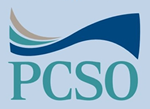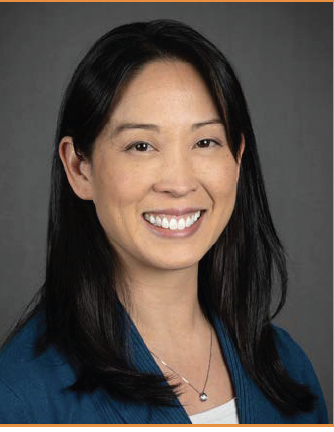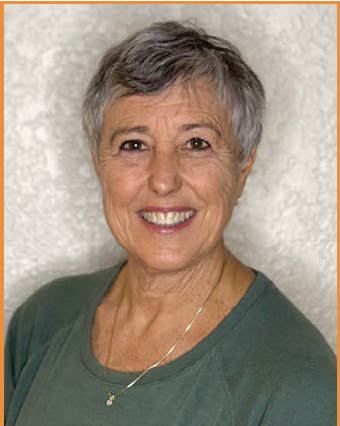An Interview with Benita Wong, DDS
Juliana Panchura (JP): Give us a brief overview of your professional career path since graduation.
Benita Wong (BW): I graduated from my ortho program in San Francisco in 2008, just as the Great Recession was getting underway. My significant other (now husband) was applying to grad schools around the country, and I was looking for jobs in cities where he wanted to attend school. I was keeping an openmind for different job opportunities, but I knew I did not want to buy into a practice right away, or maybe ever. We were extremely lucky when a friend of ours introduced us to her orthodontist friend in Oregon looking for an associate to help run his growing private practice in a small college town that had an excellent school for my significant other.
I worked as an associate in this very well-run private practice for about a year and learned a great deal about patient management, staff management, treatment planning, and running a successful, busy orthodontic practice. The experience was invaluable and taught me what to strive for as an orthodontist. It also taught me that I would not personally enjoy running my own business, especially the marketing aspect.
After the associateship, I started working for a corporate organization that was looking to expand orthodontics in a less populated area where it had only general dentistry offices. Because I was its first orthodontist in this region, my managers gave me quite a bit of flexibility on how to set up my ortho practice: they let me choose my own basic supplies, create my own schedule, train my own assistants, and set my own fees. They started me with a small baseline daily rate and then paid a percentage of production if I made more than the baseline. Even though I knew I wasn’t paid as much as most of my colleagues in private practice or other orthodontic corporations, I enjoyed building my practice from ground zero without much interference from management and seeing the fruits of my labor while not having to worry about running the parts of the business I didn’t enjoy.
After nine years with that company, I transitioned to Permanente Dental Associates (PDA), which is a company owned and run by dentists in the Pacific Northwest region. I have been with PDA for three years now and am extremely happy where I am.
JP: What is attractive about working for a corporate organization?
BW: There is quite a variation in corporate organizations out there. A provider’s experience working for one depends on the company’s priorities, its culture and expectations, and how well it treats its employees. It also depends on the orthodontists’ personality and how well their values and ways of working match that of the corporate organization. For orthodontists who are independent and want to be in full control of every decision, working for any corporate organization would be probably short-lived and just a stepping stone for private practice. For those of us who are less inclined to run a business, there are nice advantages working in a corporate setting.
One advantage is that corporate organizations generally assume responsibility for all the details of running a dental clinic that could be overwhelming, such as billing insurances, collecting payments, covering overhead costs, ensuring compliance with HIPAA and OSHA regulations, and managing employees. For those who have recently graduated, it is nice to not have to worry about these issues while improving their clinical skills.
Working for a corporate organization also helps alleviate the stress that comes from personally building a practice, earning referrals, and constantly marketing in a highly competitive market. Maybe many orthodontists enjoy being well known in their communities, but for me, I’d rather avoid the spotlight. A corporate organization usually does all the work to fill the schedule by accepting certain insurances and/or providing attractive conveniences or other benefits to patients, so the orthodontist does minimal marketing.
Some corporate organizations, with PDA being on the more generous end, offer robust medical and dental benefits, a generous 401K package with company matching, quarterly bonuses, and an annual allowance for continuing education (CE) courses and personal equipment such as loupes and uniforms. They may also offer free CE classes, group CPR recertification, and risk management courses. I enjoy my salaried position at PDA (with annual raises and a chance to become a shareholder), which guarantees stability through a downturn in the economy, such as a recession, pandemic, and staff shortages. It is nice to have a safety cushion during hard times. PDA is also unique in that the dental care is closely integrated with the medical care for patients with Kaiser Permanente insurance plans in Oregon and Washington. Dentists have access to each patient’s medical chart and can easily communicate with their medical doctors about important health issues that could affect their orthodontic treatment, such as sleep apnea, diabetes, osteoporosis, autism, attention deficit hyperactivity disorder, and history of cleft lip/palate.
Moreover, working for PDA with other orthodontists provides me the benefit of discussing treatment plans in a noncompetitive environment. We share ideas and discuss a wide range of orthodontic issues, and I have learned a great deal from my orthodontic colleagues. In addition, I enjoy sharing an office with several general dentists and other specialists, all of whom I have the utmost respect for in terms of their integrity and dedication toward their patients. Communication with other providers is seamless, as we share the same set of radiographs and can view each other’s digital chart notes immediately. My practice has improved significantly by having access to a wealth of information and caring providers to offer the best care to my patients.
Ultimately, working for a corporate organization enables me to leave my job at the end of the day and go home to focus on my family. Having this ideal work-life balance is worth it to me to give up the autonomy (and all that goes with it) enjoyed by my private practice colleagues. My husband and I love our careers, enjoy the free time to raise our kids, don’t worry about our retirement, and live very comfortable, stress-free lives.
JP: How did this practice model help develop your clinical and managerial skills?
BW: Instead of having to divide my attention and being distracted with marketing or running a business that I don’t enjoy, I have been able to focus entirely on patient care and working with my team to become the best cohesive unit we can be. A significant improvement in the way I practice by not worrying about my paycheck is that I do not worry about whether or not patients start treatment with me. This pays off when I am offering my recommended treatment plans and discussing their treatment options: I can be very honest about what is best for them and the health of their teeth, and patients and their parents certainly appreciate that. In terms of my skills in managing my assistants, working in a corporate setting is very different from private practice because I am not the boss of my staff. They are, instead, my coworkers, with whom I need to work harmoniously since I can’t fire them and can’t ask them for too much. Over the years of working with a wide range of personalities in different staff, I have learned how to be a better teacher, listener, and team member.
JP: All practice models have drawbacks. What do you feel is the downside of corporate employment?
BW: You have to be comfortable with others running the business and selecting dental materials, supplies, the labs you’ll use, equipment, and staffing. Ascertain if the corporate organization is valuing profit over quality of care.
In private practice, the orthodontist gets to choose exactly with whom they want to work. In some corporate organizations that undervalue and underpay their assistants and managers, there can be a large problem with high turnover rates, which makes life difficult for the orthodontist trying to run a well-organized practice.
Moreover, from what I’ve read and heard about some less-than-desirable corporate organizations in very highly competitive areas, they may try to take advantage of new hires because there may be a large applicant pool. For instance, some will only offer positions with very low-level baseline pay and no chance to be fairly compensated for production, long contract-binding work agreements, unfairly long advance notice before leaving employment, and lack of guaranteed supply of patients if pay is solely on
production. On the other hand, some corporate organizations that pay a salary might pack a schedule with an overwhelming number of patients, overworking the orthodontist and staff to the point of burnout. In my particular situation, part of the reason why I’ve managed to stay in the corporate world for so long is that I’ve been fortunate in finding companies that have valued me as a provider and treated me and my team well. I’ve always been given the power and space to practice the way I’ve wanted to, without unreasonable demands and expectations.
JP: Tell us about your involvement with Advantage Smiles for Kids (ASK).
BW: ASK is an orthodontic nonprofit organization in Oregon and Idaho that makes a huge impact on many low-income, at-risk kids with severe malocclusions. Unlike our neighboring states California and Washington, Oregon does not cover basic yet important orthodontic treatments in the state-covered insurance for our low-income population, which typically cannot afford orthodontic treatment. ASK bridges this gap by offering grants to qualifying low-income and at-risk patients to obtain orthodontic treatment from participating orthodontic practices who will treat these patients at a reduced fee. In return for orthodontic care paid by ASK, the patients are expected to carry out volunteer work to pay it back, or forward in this case. This program drastically improves the lives of kids in our most vulnerable populations by raising their self-esteem and confidence and eliminates some of the major factors holding them back in life.
At my first corporate job, I was able to freely participate in the ASK program with no objections from management, which was fantastic because we were referred many at-risk patients from our clinics who qualified for the ASK program. It was very rewarding being able to treat these patients and significantly improve their lives, and I treated as many as I could. These patients are also often some of the most appreciative patients, and because they are often challenging cases, they are the ones who show the most improvement in all aspects of their life. Since 2014, I’ve participated as a screener for all the applicants to help determine who would best qualify for the ASK program. ASK is an incredible program, and we are fortunate that many Oregon orthodontists already donate their time to treat ASK patients.
JP: Any advice for orthodontists considering corporate employment options?
BW: Seeing that there is a large range of corporate organizations hiring orthodontists, some significantly better than others, I recommend thinking hard about these questions before signing your contract:
□How will you be compensated, and how well will this job support you through worst-case scenarios, such as a recession, a pandemic, or lack of adequate staff? What kind of guarantees of pay will you have to make ends meet, to pay your loans and bills?
□If you will be paid based on production, but rely on them to supply your patients, how will they guarantee the source of patients for you? Will you have to market yourself, or will they do an adequate job marketing for you? How much marketing are you willing to do on your own?
□If you will be salaried, how many patients will
you be expected to see each day and how much control do you have over your schedule? Are you comfortable with seeing this number of patients while maintaining your ideal treatment plans and goals?
□How are the quality of the facilities, equipment, and supplies? How much say will you have over the types of supplies, instruments, and brackets, wires, and aligner treatments? How will this affect the way you wish to practice?
□Is there a high turnover rate of managers and assistants? If so, you may have to live with a difficult and unsatisfying working environment if you have to constantly train new assistants. (You will need to train them to a certain extent no matter how many years of experience they have.) Don’t just look at how well they compensate you as a provider but also the people who you rely on within your ortho team.
□Are you happy with the employment terms such as the benefits, any annual pay increases, length of contracted employment, advanced notice before ending employment, and noncompete agreements? You may want to hire an employment lawyer to review the contract and offer good advice on what you should try to negotiate or not. Apparently, even for large corporate organizations, if they are desperate enough to hire you, you may be able to negotiate terms that are much more favorable for you. If I could offer only one piece of advice for new graduates, it would be this: Don’t sacrifice your livelihood and good-quality care for patients in your career just because it pays well. Think about your work-life balance and the sound orthodontic principles you’ve learned, and try not to undermine the importance of both as you grow in your career.



